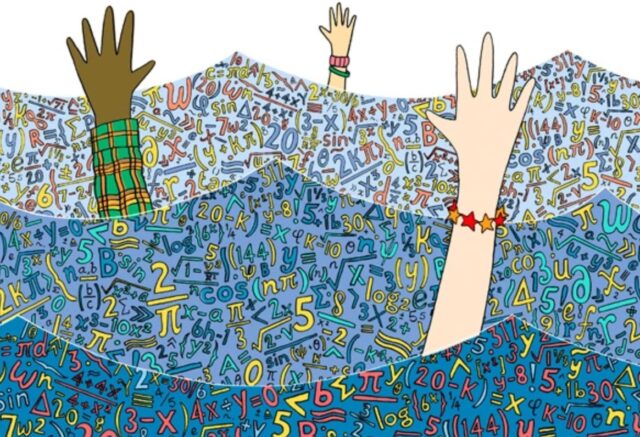
Have you ever thought about the reasons behind the complexity of algebra? Why is it so difficult for some students? Is it the subject itself or is it complicated to memorize the rules? If there could be a survey, every other person would have its theory about the cause of difficulties in understanding basic algebra principles. However, the one thing they would all have in common is the fact they find it hard. Solving algebra problems can sometimes be overwhelming. For some extra help, visit this site.
To be able to comprehend the thought process behind algebra struggles, it’s essential to define what algebra is. As the majority of people already know, it is one of the parts of mathematics, a branch that is studying and is dealing with symbols that represent variables, which are quantities with no fixed values or in other words – unknown quantities.
Other than that, number theory, analysis and geometry are connected to algebra problem solving which makes one of the oldest math branches so complex. It includes a variety of problem-solving, from elementary equations to the abstractions. Algebra itself is divided into different levels and sub-branches such as elementary, advanced, abstract and linear. Caddell Prep is a great resource for Algebra help.
The Reasons Why Algebra is Hard for Some
1. It is a Specific Way of Thinking

Students are often being challenged by dealing with numbers in algebra not realising that it’s all about logical thinking rather than memorising the formulas and applying them. In algebra, everything is logical and analytical reasoning about numbers is quite different from quantitative reasoning with numbers.
The problem occurs when students who had previously learnt to solve problems by arithmetical thinking try to learn algebra the same way. Yet the best way to indulge in the world of algebra is to forget the problem-solving techniques you’ve learnt so far or at least stop thinking the same way and learn to think algebraically. Instead of memorising how things work through automatically learned processes such as dividing, multiplying, adding etc., you’ll have to approach learning differently by asking yourself how something should be solved, and not what steps you should use to solve a problem.
So the question of why should be more important than how. Understanding new math concepts combined with positivity and consistency is what has been shown to give the best results.
2. Previous Knowledge is Needed

Sometimes students get discouraged and they feel like they’re stuck only because they weren’t prepared enough when it comes to previous knowledge they got in high school or elsewhere. The amount of previously learnt math basics and the retained knowledge that can be applied and combined with algebra is essential for understanding the next levels of mathematics.
The transition to algebra should be seamless and successful so quite often, students will need encouragement and some extra time working on building the foundation for algebra. Despite the fact it’s necessary to put aside the arithmetical way of thinking, on the other hand, an arithmetical background is like the bricks in the wall – a foundation for a great algebra understanding. In any case, if you understand that you are stuck and cannot solve the task on your own, you can find term papers for sale and be sure that they will help you.
Learning gaps can make the process more difficult, and cramming only makes it worse. Only a consistent learning curve seems to have an impact on passing the exams.
3. The Teacher Was Uninspiring

It is the same for every subject out there. The person who’s introducing you to something new and difficult must have a positive attitude towards your ability to process and conquer everything you’ve just got in touch with. A great teacher should be patient, creative and innovative, making the learning process fun and interesting for its students.
The way you are first introduced to a concept will have a strong impression on both your self-esteem and the things you need to learn to pass the exams. Making math games, quizzes and other games can make students curious and make it more real as well as understandable for them, and it’s a great way to get the students engaged and open to overcoming any new obstacles that get on their way of learning.
4. It Takes Time to Process Everything

Expecting to master something so complex is unrealistic and it may backfire to the person who’s trying to do it. According to Quizbroz students need to be taught to take one step at a time, and to be aware of the process and its importance. That kind of mindset will be a stress reliever for the learners and with a good teacher who can make the concepts clear and emphasize the importance of taking your time, the results will be better in the end.
However, a lot of people have some kind of trauma somewhere in the back of their minds, and they often hate dealing with mathematical problems, because someone, somewhere didn’t know how to communicate and find the right way to illustrate and clarify the principles and concepts of algebraic thinking – and has made them terrified. Practice makes perfect and as simple as that, it is just necessary to practice a lot!
5. It is Too Abstract

Numbers are boring especially when there is no connection to the real world but luckily there’s always a way to explore and place algebra in everyday situations and to connect it with a concept you’re trying to understand. Algebra is something that we all use on a daily basis, for example, how could we know how much money can we expect to have on our investment account after a couple of years or what is compound interest? It can be applied to almost anything – mortgage, a grocery bill, a football game, measuring ingredients while cooking.
Algebra concepts are actually applicable to numerous areas of our lives and are essential when it comes to managing our money, our business, our insurance plans, whatever may come to your mind. In everyday life, we’re all trying to break down a problem and try to find the right solution to it. Training your mind to think logically has a pivotal significance in our lives, and the funniest thing is – we’re not aware of it!









